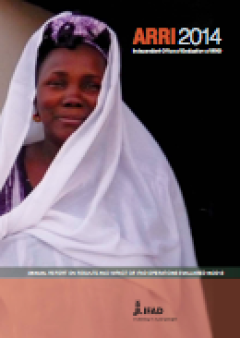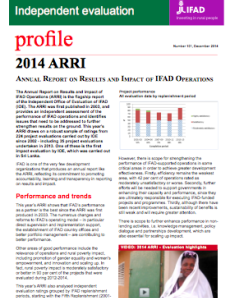
Annual Report on Results and Impact of IFAD Operations (ARRI)
Aiming to provide an integrated perspective across all types of evaluations, the report highlights the results and impact of IFAD activities, discusses lessons learned, and draws attention to related systemic issues with a view to further enhance IFAD's development effectiveness. In addition, the ARRI concentrates on the learning issues which are recurrently emerging in IOE's evaluations as areas that merit further attention. For instance, the 2014 ARRI dealt in depth with the issue of project management.
Among others, the report is intended to provide the basis for discussion by the Executive Board and IFAD on how IOE can best present a synthesis of its evaluation findings. All multilateral and bilateral agencies are having to face up to a similar challenge, to a greater or lesser extent, namely how to analyze and report on their overall effectiveness on the basis of limited evaluation and performance information. With the experience gained in the past ten years, IOE has accumulated an important amount of evaluative data and information for larger-scale analysis and has been tracking the evolution of performance and impact of IFAD operations. In addition, the adoption of the Evaluation Manual on Methodology and Processes (2009) has facilitated the process of consolidating all spectra of evaluations, based on the more rigorous guidelines for evaluations.


